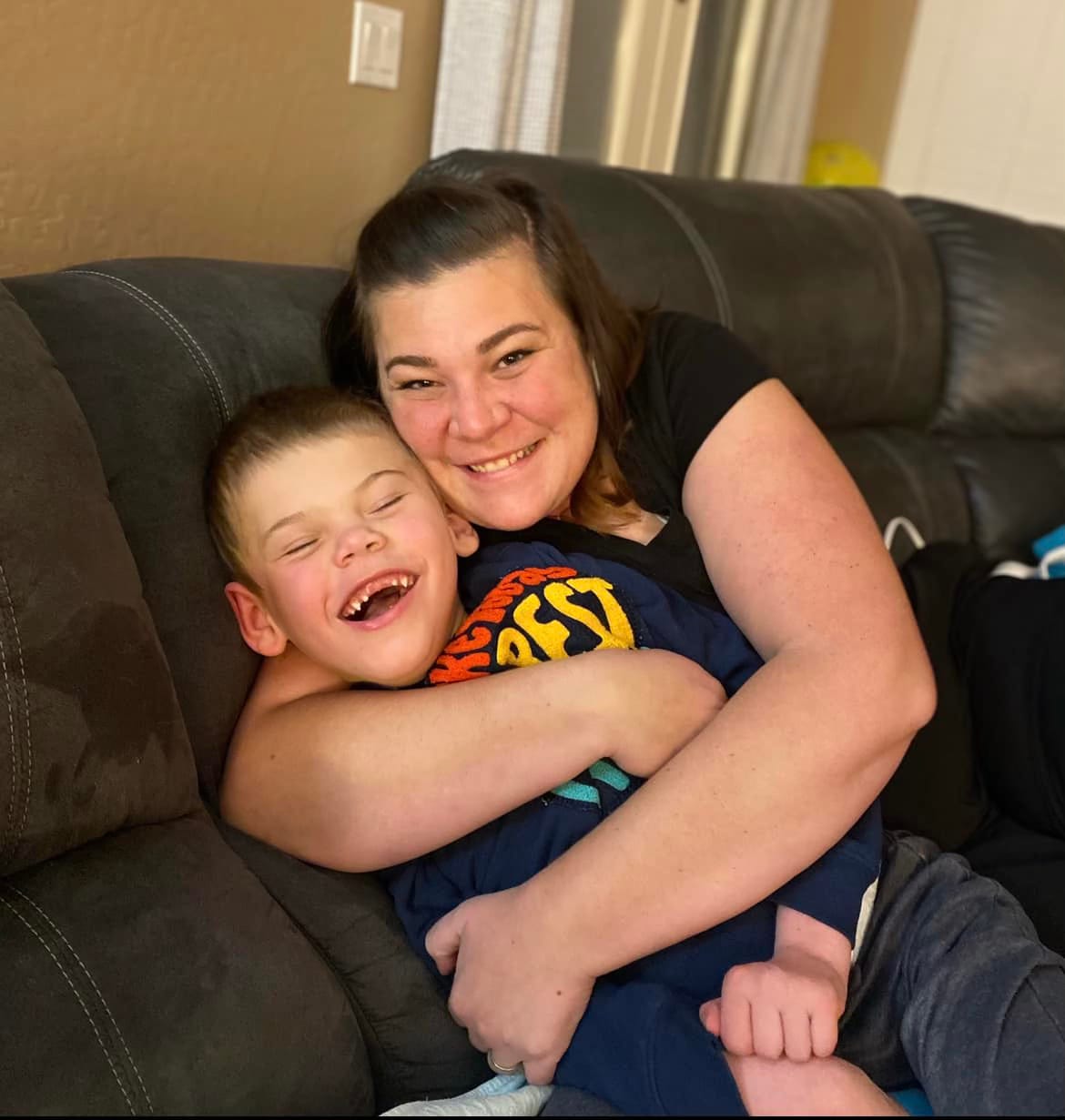Arizona families face 'catastrophic' cuts to home care for disabled children
Plus: A medical mama fought and won the right to accommodations in the workplace, a ruling that covers the entire European Union and the U.S. Congress pushes back on IDEA changes

Medical Motherhood’s news round up
Snippets of news and opinion from outlets around the world. Click the links for the full story.
• From ABC 15 (Arizona) : “Arizona families with disabled children to see 'catastrophic' service cuts”
Children with disabilities will see major restrictions to their state services starting next month, cuts advocates say could be catastrophic for families.
The Division of Developmental Disabilities is revamping its policies on attendant care and habilitation services for those younger than 18, changes required by the funding legislation that saved the program running out of money last spring.
“This will cause catastrophic damage to the families that serve our most vulnerable individuals in our state,” said Brandi Coon, a mother who founded the advocacy group Raising Voices Coalition. “And if we're going to make changes, we have to do in a better way.”
Under changes to DDD’s assessment tool, the state will no longer assess the needs of children younger than 10 with disabilities for attendant care, which pays for care workers who help provide safe and healthy living conditions. There are also new, age-based limits on habilitation, or therapies that help those with disabilities gain needed life skills.
That means families now must cover those costs – and parents who were paid for those services as part of a state program will no longer receive that compensation.
“What that will cause is families to go into crisis,” Coon said. “They could be homeless because either they don't have the ability for providers to come in, or they themselves won't be able to work.”[…]
• From Disability Scoop: “Congress Pushes Back On Trump’s Wish List For Disability Programs”
As federal lawmakers stare down a deadline to fund the government, they appear poised to reject a Trump administration effort to make big changes to the Individuals with Disabilities Education Act and defund some disability programs — but it’s far from a done deal.
Congress has until the end of this month to pass legislation funding the federal government’s next fiscal year, which begins Oct. 1, or risk a shutdown.
In his budget request, President Donald Trump called foreliminating funding for University Centers for Excellence in Developmental Disabilities, or UCEDDs, as well as a handful of programs serving people with disabilities at protection and advocacy agencies. He also sought to alter IDEA in an effort to consolidate funding and give states more control over where dollars go.
[…]Advocates had pushed back forcefully on the Trump proposals. More than three dozen organizations characterized the idea of ending funding for UCEDDs as “dangerous and misguided” in a letter to lawmakers organized by the Consortium for Constituents with Disabilities over the summer. The centers, which provide early intervention programs, autism evaluations, training for families and more have existed in every state for more than 60 years.[…]
[…]“There is always a risk of parts of IDEA being block granted when the full House and Senate consider the appropriations bills, but it is much less likely now since the House and Senate appropriations committees agreed not to do this,” said Ricki Sabia, senior education policy advisor at the National Down Syndrome Congress.[…]
• From Fisher Phillips: “New EU Ruling Expands Protections for Parents of Disabled Children in Italy and Beyond: Employer Obligations Explained”
The European Court of Justice (ECJ) just issued a ruling that expands the scope of EU disability discrimination law in Italy and beyond, confirming for the first time that indirect discrimination by association applies to employees who are the primary caregivers of disabled children. What does the September 11 ruling in GL v AB SpA mean for EU employers? When workplace rules or practices – such as shift patterns, working hours, or access to permanent contracts – put caregivers at a disadvantage compared to other workers, employers may be liable for discrimination even though the employees themselves are not disabled. The Court went even further, however, holding that reasonable accommodations may be required for such caregivers, provided these do not impose a disproportionate burden on the employer.
The dispute arose in Italy, where an employee (only referred to as “GL”) worked as a part-time station operator for engineering conglomerate AB SpA.
• She repeatedly asked her employer for a permanent role with fixed morning hours so she could care for her disabled child, who required a strict daily program of support in the afternoons.[…]
• GL argued this refusal amounted to discrimination because it prevented her from balancing her work with her caregiving responsibilities.[…]
Medical Motherhood brings you quality news and information each Sunday for raising disabled and neurodivergent children. Get it delivered to your inbox each week or give a gift subscription. Subscriptions are free, with optional tiers of support. Our paid subscribers make this work possible! Not ready to subscribe but like what you read here? Buy me a coffee.
Follow Medical Motherhood on Facebook, Bluesky, X, TikTok, Instagram or Pinterest. Visit the Medical Motherhood merchandise store.


